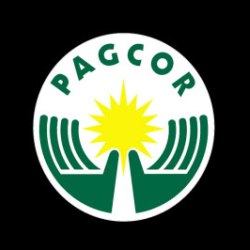A Look at the Philippines Gambling Industry

Casinos in the Philippines have been thrust into the limelight, once more. Often equated in the country to vices like tobacco and alcohol, these gambling venues are currently having their business interests threatened due to the recent shooting incident at the Resorts World Manila on June 2nd, as well as the anti-money laundering (AMLA) legislative hearings that are seeking to include casinos in investigation under Senate Bill 45. Consequently, Philippines casinos are likely to remain at the forefront of news items for some time, and with that in mind here are a few of the things you should know about the state of the industry inside the Southeast Asian country.
$2.3 Billion Industry
The casino industry in the Philippines is a P118 billion business, which at the current US dollar to Philippine Peso exchange rate of 50.6323PHP gives it a market value of around US$2.3 billion. Ever since the year 1976, the Philippine Amusement and Gaming Corporation, known most commonly as PAGCOR, has been supervising casino gambling games, with the industry helping to generate funds to help the government’s budget while helping to pay for socio-civic projects and infrastructure.
Besides casino regulation, PAGCOR also has its own nationwide casino network. Everything began to change in the year 2008, however, when the government made the decision to open up the country’s gambling market to everyone in the world, in the process helping to remove the monopoly that PAGCOR once held. As a consequence, Credit Suisse, an investment bank, has predicted that the Philippines’ gambling industry will generate revenue of $6 billion by the year 2018, which would make it one of the top gambling countries in the world.
VIPS and Mass Market
While there are a number of privately owned casinos, those only account for less than 18 percent of the total casinos in the country, with the rest under government control. The main gambling action then takes place on the Entertainment City strip in Manila, but because of changes to the country’s casino industry, those companies investing in Entertainment City had to spend a minimum of $1 billion to keep their businesses primed for providing all round entertainments. That is because these resorts are not intended to attract not just gamblers, but high-end visitors and tourists that are looking to pass their time visiting swank restaurants, luxurious hotels and more.
VIP Gamblers are also a prominent feature of the country’s casino market, with these wealthy foreigners flown in by the casinos who subsequently provide them with both luxury accommodation and credit lines. These clients are also given access to special gambling rooms, instead of having to play with the general gamblers associated with the standard casino floor. Interestingly, it has been suggested that growth in the VIP segment has mainly come from proxy betting, which is still illegal in Macau.
PAGCOR to be Sold
Carlos Dominguez, the finance secretary, said that the government intends to sell PAGCOR-operated casinos to private bidders by the year 2017 since they are no longer able to compete with licensed casinos. Currently, there are around 11 casinos nationwide that are operated by PAGCOR, with two of these found in the Manila metro area. In the meantime, financial statements from PAGCOR show that an increase in gambling revenues over the year have risen to as high as P43,385, and even with all of the bad publicity surrounding the Philippines, such as the horrific attack on the Resorts World Manila by a crazed gambling addict, casinos in the country of 10o million people still intend to hit their revenue goals, and do so with ease.
Impact of Resorts World Manila Attack
At the beginning of this month, a lone gunman entered the Resorts World Manila (RWM) and attempted to steal millions of dollars of chips by creating diversionary fires inside the property. A total of 37 people subsequently died in the attack, with the gunman, after escaping to an adjoining hotel, then killing himself. As a result of the incident, PAGCOR is expected to take a PHP384 million ($7.6 million) loss to its books, as gambling operations at the RWM have frozen pending an official probe, incurring a loss to PAGCOR of roughly P12-P14 million a day.
Furthermore, unless the situation is remedied soon then the jobs of around 16,000 direct and indirect employees are at risk, and as Domingo commented in a recent news report:
“For the whole month of June, we could have lost P384 million. If it continues, let’s say for the whole year, that remittance is about P4.5 billion a year. It’s a big problem for us.”
In the meantime, the RWM is stringently carrying out all the prerequisites needed for having its suspension order lifted, but as Domingo explains:
“We’re not imposing this not only to RWM, we going to impose it to all our other integrated resorts including those situated in the economic zones of Clark and Subic.”








